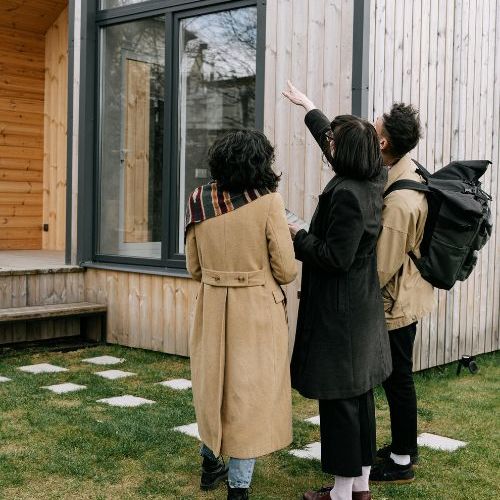Table of Contents
- What Is Earnest Money (EMD)?
- How Much Earnest Money Should You Expect to Pay?
- Is Earnest Money Refundable?
- Why Does Earnest Money Matter in Colorado Real Estate?
- How Earnest Money Protects Buyers and Sellers
- What Happens If the Deal Falls Through?
- Tips for Buyers and Sellers in Arvada and Denver
- FAQs
1. What Is Earnest Money (EMD)?
If you're buying a house in Colorado, you've likely heard the term EMD, which stands for earnest money deposit. It’s a key part of the real estate process, but it's often misunderstood.
Earnest money is a deposit a buyer submits with their offer to show they’re serious. It’s not an extra fee. It becomes part of the total purchase price once the deal closes. In short, it shows commitment.
At Dempsey Group, I always explain this to buyers and sellers early on, because it's important to know what it is, how it works, and how to protect it.
2. How Much Earnest Money Should You Expect to Pay?
There’s no set number, but in Denver and Arvada, earnest money usually ranges between 1% and 3% of the home’s price.
For example:
- On a $500,000 house, the EMD might be $5,000 to $15,000.
- On higher-end homes, it may go higher — especially in a competitive market.
It’s negotiable, but the amount matters. A stronger EMD can make your offer more appealing to sellers, especially in multiple offer situations in Colorado.
3. Is Earnest Money Refundable?
This depends on how the purchase contract is written and if any contingencies are included. Common contingencies include:
- Financing
- Appraisal
- Inspection
- Title review
If a buyer backs out for a reason covered under the contract — like the home doesn’t appraise or the inspection reveals major problems — the EMD is usually refunded.
If a buyer walks away without a valid reason or past the agreed deadlines, the seller may have the right to keep it. That’s why I guide my clients carefully through every deadline and document.
4. Why Does Earnest Money Matter in Colorado Real Estate?
In Arvada and the Denver Metro Area, homes can attract multiple offers. Sellers want to know a buyer is serious. Earnest money helps signal that.
As your Realtor, I make sure your contract terms are clear and the EMD is handled securely — usually by a title company.
It’s not about “risking money.” It’s about showing intent and standing out with a well-written offer that protects both sides.
5. How Earnest Money Protects Buyers and Sellers
For buyers, it provides a structured way to move forward with a home purchase while allowing time for inspections, financing, and other due diligence.
For sellers, it means the buyer has real interest. If the buyer backs out without cause, the seller may keep the EMD.
That’s why clear timelines and contract language matter. I help clients on both sides understand what they’re agreeing to from day one.
6. What Happens If the Deal Falls Through?
If the buyer terminates within the contract’s terms — for example, during the inspection period — the earnest money is refunded.
If the buyer fails to meet deadlines or cancels for a non-contingency reason, the seller may be entitled to the deposit.
I always explain this in real terms with my clients. No surprises. If you’re buying, we make sure contingencies are in place and you get a weekly to-do email from me that helps keep the deal on track and makes sure we protect your earnest money. If you’re selling, we review the EMD terms carefully before accepting an offer.
7. Tips for Home Buyers and Sellers in Arvada and Denver
Buyers:
- Ask your agent to explain the contract deadlines up front.
- Always confirm how and where the earnest money will be held.
- Don’t skip contingencies unless you’re prepared to risk the deposit.
Sellers:
- Look at more than just price when reviewing offers.
- Consider the EMD amount and contract terms when deciding on an offer.
- Work with your Realtor to stay on top of deadlines in case you need to release or retain the funds.
FAQs
Q: What happens to earnest money at closing?
A: It’s applied to the buyer’s closing costs or down payment. It’s not extra — it goes toward the total amount due.
Q: Who holds the earnest money?
A: Usually a third party, such as a title company, holds the EMD in a secure trust account.
Q: Can a seller ask for a higher earnest money deposit?
A: Yes, sellers can request more if they want stronger assurance — especially in high-demand areas like Denver and Arvada.
Q: Is earnest money required in Colorado?
A: It’s not legally required, but most sellers expect it. Without it, your offer may not be taken seriously.
Q: What’s the difference between earnest money and a down payment?
A: Earnest money is paid early to show commitment. A down payment is paid at closing to fund part of the home’s purchase. Your earnest money is applied to your down payment.
If you are looking for daily insight and tips on today’s market, follow Lauryn Dempsey on LinkedIn. If Lauryn can help you strategize your next steps in real estate in the Denver Metro Area or elsewhere across the U.S., please book a call!



